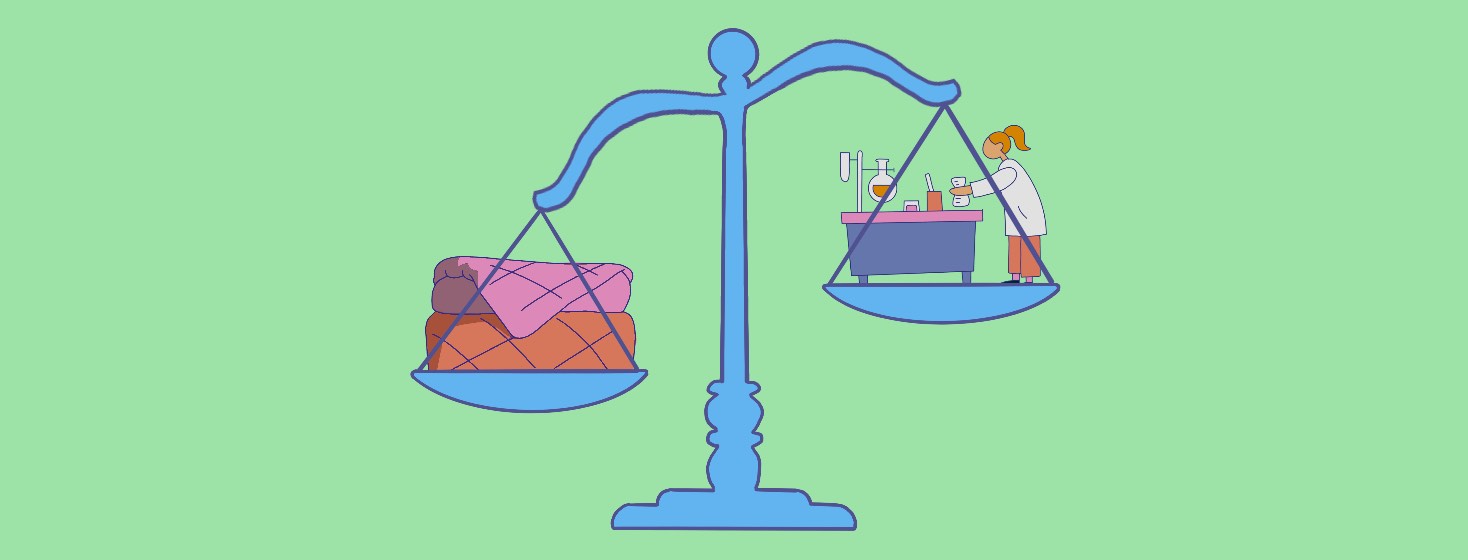Weighing the Research on Weighted Blankets
Let me admit from the outset that I have been skeptical of weighted blankets for insomnia. To me, they have seemed like another fad treatment for insomnia, like the herbal teas and essential oils that came before them. I’ve heard from friends and patients that weighted blankets have been helpful for them. But my cynical researcher mentality refused to buy in until their claims were supported by weighted blanket research for insomnia.
Initial lack of research
Up until recently, there has been very little good research conducted on weighted blankets research for insomnia. Studies have been small, poorly designed, and inconclusive. Truth be told, the research is still limited, but it’s moving in the right direction.
One study reported significant improvement in sleep for participants with chronic insomnia. Participants in this study reported better sleep quality and feeling more refreshed in the morning after sleeping with a weighted blanket. Unfortunately, the sample size was small and there is a question of whether sleep medication contributed to the outcomes, both of which limit how confident we can feel in the results.1
A well-designed systematic review of the existing research also offers some hopeful conclusions. The authors note the limits of existing studies on the topic, but also conclude that “weighted blankets have the potential to be beneficial in limited settings and populations.” That’s not nothing.2
How do they work?
I’ve become more curious, and even open-minded, based on these findings. If weighted blankets do work for insomnia, how do they work?
According to proponents, weighted blankets produce deep pressure stimulation that promotes sleep. This is the same kind of pressure that is used in acupressure and that has been helpful to people with sensory disorders. The pressure is thought to increase relaxation-inducing chemicals like oxytocin. Oxytocin can also decrease pain sensations. The weighted blanket may also increase feelings of safety and confidence. In summary, weighted blankets are thought to reduce anxiety and hyperarousal, and reduced arousal is a known contributor to good sleep.3
Weighing the pros and cons
Pros:1
- Weighted blankets are safe and well-tolerated by most people
- Affordable options are available
- Patients report liking their weighted blanket
- Patients report improved sleep with their weighted blanket
Cons:
- Some patients may find the weighted blanket to be constraining or anxiety-producing
- They are more expensive than regular bedding
- They are difficult to travel with
My perspective changed
All in all, there seem to be many pros and only a few cons to using a weighted blanket. Given that the research has labeled it as a promising intervention without adverse side effects, I’ve stopped rolling my eyes when I hear about weighted blankets. It’s clear that some people have benefitted from them. And an insomnia disorder can be so debilitating that anything that works without side effects can feel like a blessing.
So while I’m not ready to try one myself, I support my patients who want to give it a try. But if it doesn’t work, I’ll encourage them to revisit one of the gold-standard treatments for insomnia.1,3
How do you weigh in on the question of weighted blankets for insomnia? Please share your story or comment below.

Join the conversation